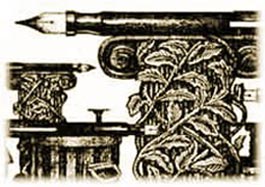
Lee Harvey Oswald hid behind the sixth-floor window of the Texas School Book Depository building as he aimed his rifle at JFK. But hiding in the grassy knoll ahead was possibly another hidden assassin closing in for the kill shot. It was the first possibly anonymous assassination of a president in U.S. history. President Donald Trump is in danger of becoming the second. His assassins use words not bullets and hide behind the First Amendment, not the grassy knoll.
Every single story attacking Trump, every leaked memo, every intercepted communication, every rumored exchange is reported to the media by anonymous sources. Death by leaking is a Washington version of the Salem Witch Trials. Instead of hysterical girls claiming to be possessed by the devil, we have hidden bureaucrats and intelligence operatives who claim to have seen, overheard, or secretly read of the most villainous kind of presidential malfeasance.
This is a particularly offensive form of a kangaroo court. There is no opportunity to confront -- or even know the name of -- one's accusers. No right to see evidence. No chance for cross-examination. No exploration of motives. Just accusation and suspicion.
To try to hobble or even impeach a president by a death of a thousand leaks is an outrageous threat to democracy and we must not let it happen.
Consider this week's scandals:
The president was right to fire James Comey. He got too enmeshed in partisan politics during the election to function effectively as head of the FBI. He did not do his job of tracking down leakers, probably because those he would have to investigate work right outside his office. He irresponsibly led to the publication of a dirt-filled dossier of personal slander against the president.
Trump was also within his rights as commander in chief to tell the Russians anything he wanted about U.S. intelligence findings. The information our intelligence agencies unearth is not for their use alone. It is part of the arsenal of weapons and incentives that the president has to have at his disposal in charming, threatening or convincing foreign leaders in our national interest.
And consider the context of his talk with Comey. His newly minted national security advisor had just been forced to resign after he called to calm Moscow down and forestall possible retaliation against the U.S. for the sanctions President Obama had provocatively imposed on them for hacking the Democratic Party.
Flynn's sin was not in placing the call, but in lying to the vice president about it. (The only law Flynn broke was the fossilized Logan Act, and the last indictment occurred in 1803.) The call was necessary so that the situation did not escalate seriously and unpredictably.
Trump was asking Comey to go easy on Michael Flynn for having made the phone call. This was not a broad injunction to close his eyes to all things Russian or to any contact between Trump people and Moscow. It was specifically about the phone call Flynn had made, a phone call that was clearly in our national interest.
But you won't hear any of this from the media. They are on a mission to undo the election and oust Donald Trump. They cannot be permitted to get away with it.
Dick Morris, who served as adviser to former Sen. Trent Lott (R-Miss.) and former President Clinton, is the author of 16 books, including his latest, Screwed and Here Come the Black Helicopters.


 Contact The Editor
Contact The Editor
 Articles By This Author
Articles By This Author